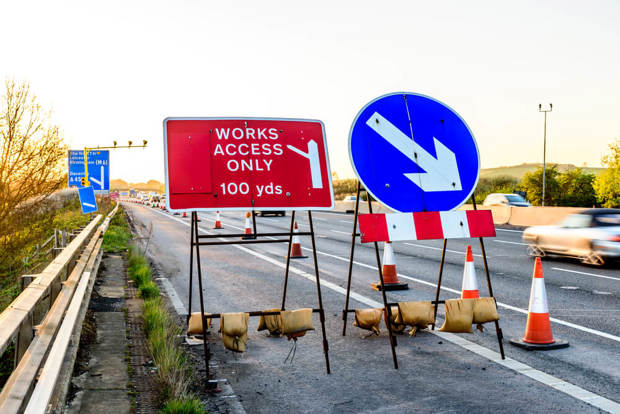Government pledges to crack down on disruptive roadworks

The Government has vowed to bring an end to delays caused by disruptive roadworks and cut congestion caused by overrunning street works.
The new proposals are part of the Government’s 30-point Plan for Drivers, which it says will "support people’s freedoms to use their cars, curb over-zealous enforcement measures and back drivers".
What’s more, the proposals could also raise up to £100 million over the next decade – money that will be used to resurface local roads in England.
The street works consultation is now open, with roads minister Guy Opperman describing it as a series of measures that will prevent utility companies from letting roadworks overrun.
There are already fines of £10,000 per day in place for street works that overrun on weekdays. The consultation seeks to extend these fines into weekends and bank holidays.
Fines for breaching conditions of the job, such as working without a permit, could also be doubled, from £500 to £1000.
Furthermore, at least 50% of the money from lane rental schemes would be redirected to improve roads and repair potholes.
The new lane rental schemes mean utility companies can be charged up to £2500 per day for street works.

"Being stuck in traffic is infuriating for drivers," says the roads minister. "Too often, traffic jams are caused by overrunning street works."
"We will seek to massively increase fines for companies that breach conditions, and fine works that overrun into weekends and bank holidays, while making the rental for such work help generate up to an extra £100 million to improve local roads," he adds.
The Department for Transport revealed that while it’s essential that utility companies carry out maintenance work, the two million street works carried out in England in 2022 and 2023 have cost the economy around £4 billion by causing severe road congestion and disrupting journeys.
AA president Edmund King says: "We are pleased that the government is looking to extend the fines for overring street works, invest more of the surplus fines in roads and ensure that those who dig up the roads repair them to a high and timely standard."
"Drivers shouldn’t have to put up with temporary roadworks than any longer than is necessary,” says RAC head of policy Simon Williams.
"They should also leave roads in better condition than they found them, which unfortunately is hardly ever the case at the moment."
Clive Bairsto, chief executive of industry association Steet Works UK, gave a cautious welcome to the new measures.
"We look forward to engaging constructively with government throughout this consultation… to ensure both utilities and local authorities can deliver infrastructure works while giving customers and road users the speed of delivery, lack of congestion and transparency they expect."

